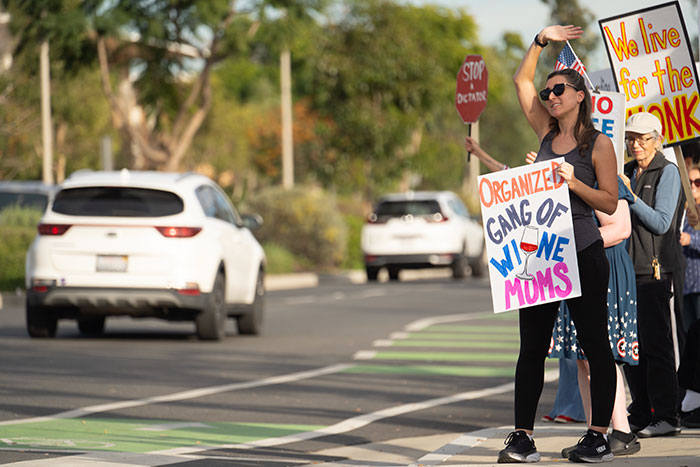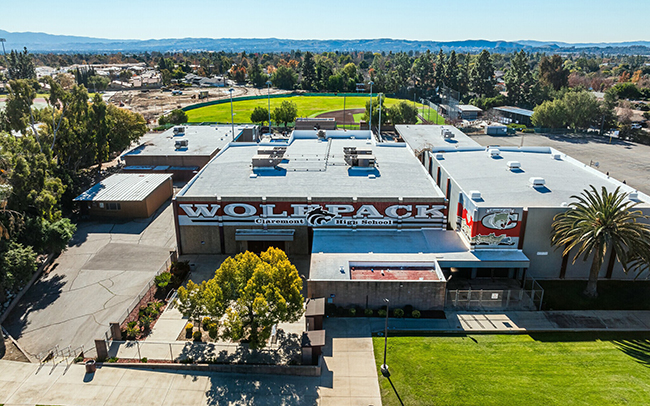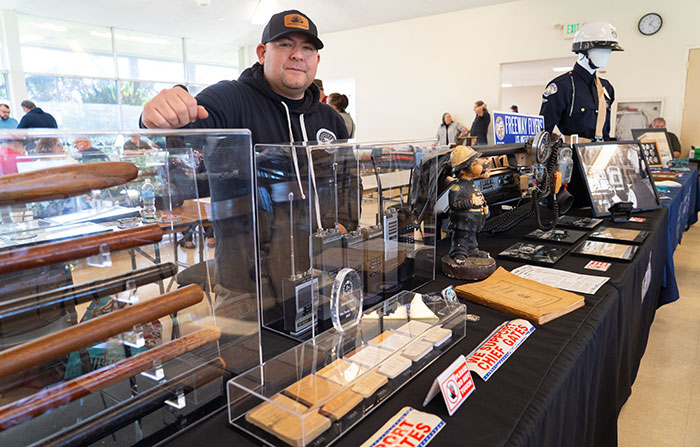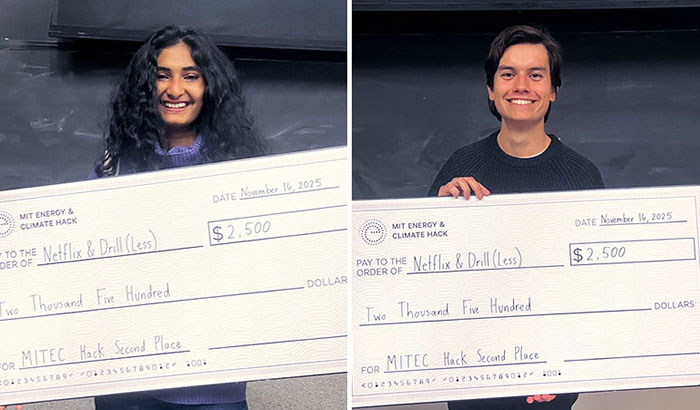Eight questions for eight candidates: Anthony Grynchal

Anthony Grynchal, 26, who calls himself “Mr. Claremont,” is running for a seat on the city council. He hopes to bring more transparency to the city and to be a conduit for Claremonters’ voices to be heard.
Why are you running for city council?
I’m running because I truly love the people. And what I want everyone to know is I’ve been here. I went to Western Christian in Claremont, I’m a local guy and I went to Damien High School in La Verne and finished up at Cal Poly Pomona. I’ve worked really hard for the people selling homes. I’ve saved my money, and I just got my dream home here in Claremont. And I believe being a city council member is being a civil servant.
I’ve come to the realization that my purpose in life is to serve others and help everyone through this whole experience. I consider myself a selfless person, and Mr. Claremont is just a metaphor for the 35,000 to 40,000 “Mr. and Mrs. Claremonts” out there who want their voices to be heard. I’m very transparent; a lot of people see me with my face on the side of the car and my website. I did that so people could feel comfortable approaching me—so I could answer questions they have about the community.
For the last four years, I’ve been going door-to-door, not only servicing real estate needs, but also asking people if they have any questions on the community. To tell you the truth, a lot of times I may not know the answer to a question, but I am relentless in asking more questions until I find the answer. I’m simply a vessel that allows the people’s voices and opinions to be heard.
It has been brought to our attention by residents that they are getting ads for your business alongside your campaign material on their doorsteps. For many, this represents a conflict of interest with your business and your candidacy. How do you respond?
I’ve actually contacted the FPPC, the Fair Political Practice Commission. I have completely separated money that I’m spending for the campaign and money that I‘m spending for advertising for real estate. I have everything on the form 460, where they can see exactly how much money I spent for real estate and how much money I spent for campaign funds.
My real estate business doesn’t interfere with the campaign or the candidacy. Being a realtor has been an honor because a lot of people have trusted me. I believe as a realtor, you’re a problem-solver. For most of the people whose homes I’ve sold, it’s the biggest part of their lives. And being able to handle that, being able to get from point A to point B, I’ve picked up a lot of skills along the way. It’s completely separate from me running for city council. I just want to take those skills I’ve learned and, as Mr. Claremont, be a voice for the people.
I want to talk more about that moniker, Mr. Claremont. You trademarked that name in 2014. Tell us why you think “Mr. Claremont” is a fitting title for you?
Since I was a young boy, I’ve had this mindset that every day I’m here is an opportunity. I was adopted when I was young, and my sister is from Latin descent and I’m from Irish descent. Not only do I have this mindset of being grateful about growing up in Claremont, it’s just the whole different way of thinking, seeing, being in a school where there are people from all over the world and learning so much about different cultures and backgrounds. I’m looking at things differently, being able to really appreciate where I’m at and realize that it’s all about human connection and serving others.
In college, I got an opportunity to go to India to help mass produce a tree called moringa oleifera, a super food. Look at a horse that survives on hay and water, well, this is like hay for human beings—this tree with the leaves ground up. It’s right now considered the number-one source of combating malnutrition worldwide. So what I learned from going out there in Punjab, India, is how to break these cultural barriers and communicate with the people.
When I did a lot of door-knocking in Claremont, a lot of people asked me, “Why don’t you run for city council?” They said we need some young blood to shake things up. And I said, “Well, to tell you the truth, the only value I could provide is making your voice heard,” and they said that’s what they need. I just believe in it. I believe and know in my heart I want to serve the city of Claremont until the day I die.
Some people are questioning the validity of the commission process in Claremont. What are your thoughts?
I think commissions are extremely important, and I think we need to have more collaboration with the Claremont Colleges. The Claremont Colleges, the school district and the city council are separate entities, and I think all the commissions in Claremont need to have more of a voice.
All last year, I had the awesome opportunity to be an advocate for the Claremont Homeless Advocacy Program (CHAP). I believe in it because I’m selling homes here in Claremont and I give my time, my money and my energy into advocating for the homeless in our streets to get back on their feet. There are hundreds of people involved in the CHAP program, just to get 10 people off the street and get them on their way. There are a lot of boards and commissions involved in getting 10 people off the street. What I’ve learned is that we need to have all these commissions, boards and advisories working together. Everyone needs to be working together and everyone’s voice needs to be heard to make a well-oiled machine.
We heard you have a specific solution to solving the water issue in Claremont. Tell us more about that.
Hundreds of cities in California, including Rancho Cucamonga, have formed what is called the “special water district.” It is a public corporation formed under the provisions of Division 12 of the state water code. It’s the most efficient form of government, because the costs of the services provided to the customers directly equal the revenue generated from the charges of the services provided. Hundreds of cities in California—Rancho Cucamonga, the Tri-Valley Water District—have generated special water districts, and they’ve been very effective in implementing that as a strategy to run a successful water company. The special water district allows the city to work with other entities of government, so LA County would help us run it. I believe this is something that needs to be looked into.
Short-term things are allocation rights. As a realtor, what I found is—and again, this is just me asking the people—when you own a home, you own the land on top of the house, all the way to the core of the earth and the airspace above. Well, Claremont sits on one of California’s largest water basins, and it’s about 385 feet below our feet right now. I’ve been asking a lot of people these questions, and they’ve been telling me Golden State gets anywhere from 70 to 75 percent of the water that they sell to us coming from this natural water basin. The question would be figuring out who gave allocation rights to Golden State Water and when, because they don’t own the water they’re harvesting, which is our water, and they are reselling it to us. That’s something I believe also needs to be looked into
What can the city do to curb the rise of property crimes and residential burglaries?
I’ve been hearing a lot about people’s homes getting robbed and whatnot. It always comes down to financial transparency. For example, in this water case—I relate back to that because if we’re spending all this money, who’s going to pay these lawyer fees? It’s going to come out of the general fund. If money comes out of the general fund, do they take it from maintenance and sanitation? Do they take it from lighting?
Euro Café got robbed three times, and I talked to a lot of people in the community and they say that shopping center needs better lighting. But if we’re wasting money on these attorneys and paying these fees and really looking into what things cost, then how are we going to get better lighting? How are we going to get more cops in patrol? It all goes hand-in-hand. We have a tight community. We have those signs—“See Something, Say Something”—that’s good, but I just think it comes back down to financial transparency.
What are your solutions for crowd control at the Claremont Hills Wilderness Park?
To tell you the truth, I don’t know how to properly answer that question. I would ask the correct people to find a solution. I would relentlessly ask the people of Claremont, going door-to-door, and I would ask the city manager and I would ask all the commissions in Claremont what they think about it, and develop an answer. And I think there are a lot of very smart people here in Claremont with a lot of great ideas. They can be heard along with the commissions, the council, the school board and the Colleges, and come up with something that could be feasible.
If you had a magic wand, what would you change about Claremont?
It would be awesome if everyone in Claremont got a quarterly update in the mail about financial transparency— how much the city made and where they spent the money. If people had a better idea of where their tax dollars are going, they would be more inclined to voice their opinion and we could do a lot better. Again, it comes back down to people’s voices being heard. I’m just an extremely selfless person. I don’t want to give off the wrong impression. My mission is to make sure all the Mr. and Mrs. Claremont’s voices are heard.
—Matthew Bramlett
news@claremont-courier.com
[Editor’s note: In addition to a quarterly newsletter, the city of Claremont produces a warrant register every two weeks, which is distributed alongside the city manager’s report and other meeting agendas. Also, Mr. Grynchal’s proposed solutions to the water issue in Claremont could not be sufficiently vetted by press time. COURIER staff is working on a follow up story. —KD]










0 Comments